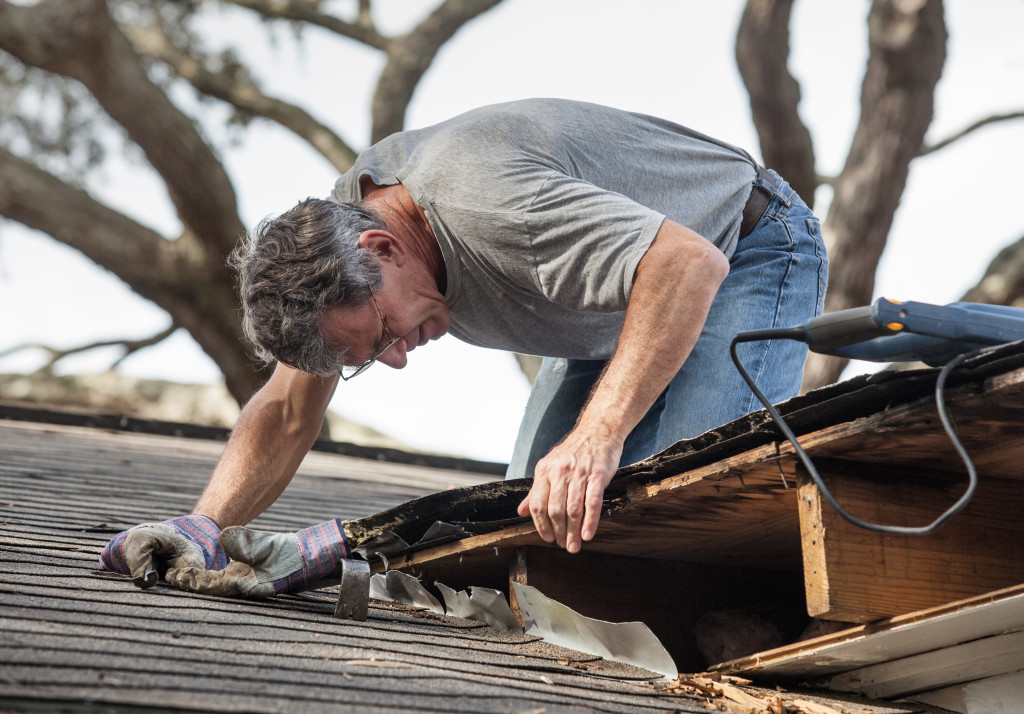- Regularly check gutters for cracks and debris to avoid water damage.
- Get an energy performance report to identify potential electrical hazards.
- Inspect your roof annually for missing shingles, tiles, or moss growth.
- Change air filters regularly to reduce wear on HVAC systems and improve air quality in the home.
- Being proactive about maintenance can help save money and keep your home comfortable and safe.
Taking care of your home is important. Whether it’s a house, apartment, or condo, your home should be a sanctuary you can rely on for a safe and comfortable space. Taking preventive measures for maintenance can save you from costly repairs, so here are a few tips to ensure that your home stays in great shape throughout the year.
Check the Gutters
If your gutters are clogged with leaves and other debris, it can cause water to back up and damage both the roof and foundation of your home. Keeping your gutters in good condition is essential for maintaining the integrity of your home and ensuring that it remains safe and secure.
What You Need to Check
When you’re checking the gutters, there are several things you should pay attention to. For starters, take a look at the overall condition of the gutter itself. Are there any cracks or dents? If so, these need to be addressed as soon as possible, as they can contribute to water-related damage over time.
Next, check for any debris that may have accumulated in the gutter—if left unchecked, this could interfere with water flow and cause excess water around your property. Ensure all fixtures are securely fastened and that none of them have come loose or corroded away.
Cleaning Your Gutters
If you find any debris or dirt during your inspection, then it’s time to clean those gutters! Start by removing any leaves or sticks blocking water flow by hand before using a garden hose with a nozzle attachment to blast away any remaining dirt. Once you’re done cleaning, inspect each section once more just in case something was missed earlier.
Get a Report for Your Electric Systems
Did you know that one of the most common causes of house fires is faulty wiring? To help ensure you’re safe from electrical issues, it’s wise to get a report for your home electric systems. Consider getting a residential energy performance certificate, which provides detailed information about the safety and efficiency of your residential electrical system.
These reports can be helpful in identifying any potential hazards in your home before they become a problem. They also indicate that you are taking responsibility for the safety of your property.
Inspect Your Roof

Your roof will suffer wear and tear due to weather conditions like sun, rain, snow, and ice. Has your roof been inspected annually by an experienced professional who understands the ins and outs of roof maintenance? Some common issues you should look for include missing shingles or tiles, moss growth, or cracked seals around flashing or chimney caps.
Change Air Filters Regularly
Swapping out air filters in the summer and winter months is one of the easiest ways to keep your HVAC system running efficiently throughout the year—and it only takes a few minutes! If you want to take things up a notch, consider investing in air purifiers that use powerful filters designed to remove pollutants like dust mites, pet dander, mold spores, smoke particles—and even viruses!
Benefits of Changing Your Air Filter
The main purpose of an air filter is to remove dirt, dust, allergens, and other contaminants from the air before they circulate throughout your home. This helps to keep your family healthier by reducing exposure to these particles. It also helps reduce wear and tear on HVAC systems, as dirty filters can cause them to work harder than necessary, shortening their lifespan.
How to Change Air filter

Changing your air filter is easy. First, locate your HVAC unit and remove the access panel to expose the filter. Next, remove the old filter (you can dispose of it in the regular trash) and replace it with a new one. Make sure you get the correct size for your system—using a filter too small won’t be effective, and using one too big can damage your system.
Once you have the new filter in place, replace the access panel and make sure it is secure. Check the filters regularly to ensure they are still clean and free of dirt or debris.
These are just some basic ways to ensure that your home remains in good condition year-round. Being proactive about maintenance allows you to avoid expensive repairs while ensuring that your home stays comfortable and safe for years to come. Don’t wait until something goes wrong; start taking preventive steps today!



